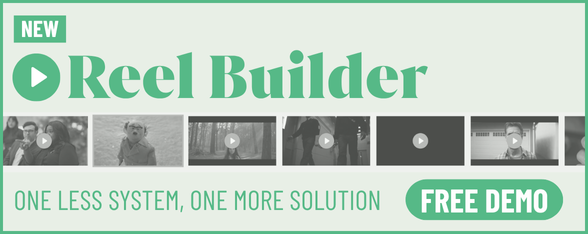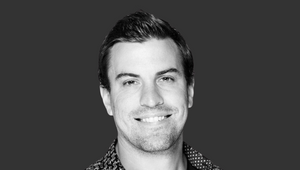
WA Leaders Want More Fun, Less Pitching Amidst “Worst” Production Year

Perth is experiencing its “worst year we’ve had yet from a production point of view” since “there hasn’t been a major shoot in town for the last six months,” but key creative and marketing leaders are adamant the market would benefit from more fun and less pitching.
Kate Downie, the executive producer of Beautiful Pictures, said the industry is currently “interesting and slow,” noting production companies are still in the difficult position of spending a chunk of time and money pitching. She asks agencies to be “brutally honest” with her on the business’ chances of success.
“I will push the agency to tell us where we're standing,” she said, speaking to LBB during a panel discussion forming part of the Immortal Awards’ inaugural Perth showcase.
“Because it's an expensive process … [and] at the moment, there's not a lot of funds floating around. So if we're not preferred– I'm happy to do a check quote at any time, but the pitching process is quite laborious.”
Sara Oteri, 303 MullenLowe’s executive creative director, noted, “production, obviously, feel it the worst, because they're the makers. And so if we're feeling the pinch, then obviously people like Kate feel it even more.”
Kate and Sara were joined by Rare managing director, and Advertising Council Australia’s WA chair, Callum Mackenzie in calling for fewer pitches. Callum said two-week pitches have become common in the market, which cause “pain” to agencies, “and it’s just got to stop.”
“You've got agencies that have got a great desire in a small marketplace to pick up the business that you need or want to grow, or pay the bills,” he said.
“You've got clients [who] might be being forced to go through the process. Clients might be excited about having a beauty parade … A lot of it is a lack of confidence. The client can be quite nervous in the process. And the agencies aren't necessarily as forthright, because they don't want to go through the process and get knocked out.”
Sara, who moved back to Perth at the start of last year after more than a decade in Melbourne, added, “I’m all for ditching the pitch, personally.”
“You know if you want to work with someone or not. Just back them,” she said. “They'll back you, and let's get on with it and make good work.
“I've also come from the east coast, so it is a little bit different. My experience has been different being here for a year. I will say it's particularly difficult when we're vying for projects, not partnerships. And like Kate, it is constant, which is lovely, to have that fluidity in the market and constantly being tapped on the shoulder to pitch, but at the same time, it is extensively exhausting.
"Everyone knows what the head hours cost, and it's further reinforced when deep down, you know it's a process that they're going through, versus they actually want to work with the people here, or [it's] project based.
“The fee that's attached to it is the cost of three senior people having a half an hour conversation, let's be frank, and then on top of it, to say at the end, 'Oh, by the way, we own all your IP as well'.”
Ultimately, 303 MullenLowe wants “to know that we're in with a shot” when they pitch, “and we will be respected as part of that and that goal post won't shift. I think that's only fair.”

Callum noted the trickiest and yet most crucial task is understanding the real business problem. “In a pitch, the brief is never the real brief. And the challenge is, in your enthusiasm and desire for the business, to cut through to get to the real brief.” Doing that, and combating the “incredible social, emotional, and financial strain that the pitch process puts on businesses”, requires “closer collaboration with the client community.”
He added, “There's incredibly talented and passionate people here who do work as good as anywhere in the world. The challenge is the market ... the opportunities to do those massive campaigns that we will see in our day to day lives have been limited.”
Currently RAC, a WA insurance brand and large advertising account, is up for pitch, as is the WA government’s media account. It’s expected the government’s creative account will also come up for review this year.
Smiljka Dimitrijevic, St John WA’s head of brand and marketing, has observed a trend of agency talent moving into client-side roles. “To me, that's a bit of a concern, because agencies play a really important part in that creative mix, in making sure that there are runways.”
She wants to see more fun in the work, referencing Kitchen Warehouse and Bankwest’s advertising as prime examples -- the WA-based clients use east coast agencies Special and Bear Meets Eagle on Fire (BMEOF), respectively, to lead their brand platforms.
Kitchen Warehouse’s work has included shredded out-of-home billboards that resemble pasta and new Mother’s Day work that sees family members targeted with ads for specific products mothers want.
Commonwealth Bank subsidiary Bankwest, meanwhile, is on a mission to build its east coast customer base, and appointed indie shop BMEOF, as revealed by LBB, to develop a new platform featuring bold out-of-home and wry TVCs. While Bear leads the creative and strategic work, it also works with Perth’s biggest outfit, WPP’s The Brand Agency.
“I think there's an increasing number of organisations that are starting to recognise the ROI of fun and entertainment,” Smiljka said.
Citing advice from Mark Ritson, she added the biggest job for ambitious marketers is “picking the right company to work for.”
“If you're joining a company that doesn't believe in marketing, doesn't believe in brand, if you're going to be pushing shit uphill, don't worry. Because if you've got to spend the first X number of years just trying to educate the organisation, you're going to be wasting time.”
Callum’s ambition for his role as the Ad Council’s WA chair is to foster more collaboration in the industry. The Perth chapter has extended membership to media agencies like Initiative and Carat, plus research and digital agencies, and counts Seven West Media -- the state’s dominant media business -- as an affiliate member.
In addition to the ACA, the market is also represented by associations such as Western Australian Marketing Association (WAMA), Perth Advertising and Design Club (PADC), and InWA, an industry body for a strong cohort of independents.
“Yes, we compete, of course,” Callum said of Perth’s creative community. “Yes, we all want to make work, and we want to have the best creative work. But it's only by working together and learning and sharing and driving it forward that we can really push the industry forward.
“Because the talent is here. There are great clients here. The opportunities are here, even though it's been a hard year. But it will come back. Another couple of interest rate drops, and you've got a trend of confidence, and we've got sustained government, good or bad, that continues on for three or four years. That gives everybody the ability to make decisions to invest in the future.”















